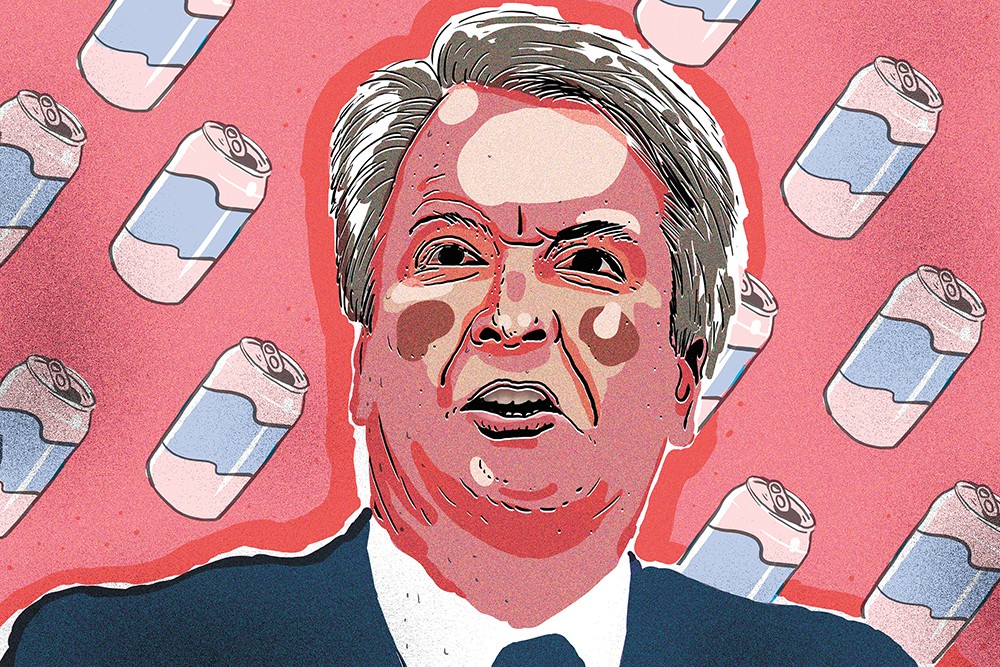William L. Shirer covered the first six years of Adolf Hitler's regime as a radio correspondent for CBS. During that time, he kept a detailed diary in which he recorded his impressions of the rise of the Third Reich. His entry of Sept. 4, 1934, coming about a month after Hitler assumed power, revealed that journalists like himself saw the Nazis for the goons they were.
Referring to then-Nazi foreign press chief Putzi Hanfstängl as "an immense, high-strung, incoherent clown who does not often fail to remind us that he is part American and graduated from Harvard," Shirer recounted Hanfstängl's remarks to the press in Nuremberg: "'Report on affairs in Germany without attempting to interpret them. ... History alone can evaluate the events now taking place under Hitler.'" In other words, stop with all the fake news.
Shirer's work showed that far from a goose-stepping monolith, the Third Reich was a collection of brutish amateurs intermingled with fools and career bureaucratic grifters, most of whom hated one another and worked to undermine their rivals. Fear was the coin of the realm, both within and without the government, and self-interest and self-protection provided its connective tissue.
A similar type of government is apparent in the sketch of another iconic journalist, Bob Woodward, whose recent book Fear: Trump in the White House shows in vivid detail the dysfunction of the Trump government. The opening quote by the president himself: "Real power is — I don't even want to use the word — fear." True to form, that fear is shot through Woodward's narrative, as Reince Priebus is thrown under the bus and "Jarvanka" (Jared Kushner and Ivanka Trump) come under fire for presuming too much power. Through it all, Stephen Bannon — the fear-monger extraordinaire — bellows at everyone from Paul Manafort to Chris Christie.
The players in Woodward's telling are ever-scrambling to shore up their own positions, terrified first that they won't win, then terrified that the man they elected will upend their seizure of power.
Related to the Trumpian freak show, the confirmation hearings of Supreme Court nominee Brett Kavanaugh present a Gordian Knot of fear. On the surface, the mortal dread of gray-faced Republican senators whose partisan hatred far outweighs any sense of obligation to the country at large. Watching the quivering jowls of Lindsey Graham or the petulant basset-hound disgust of Chuck Grassley is a lesson in the body language of a diseased political philosophy that, by aping the sexual power dynamics of 17th-century Massachusetts, has perhaps finally gone a step too far in its naked commitment to white male supremacy.
Then there's the clear panic on the face of Kavanaugh, whose responses to allegations of sexual assault looked torn from a psycho-sociological treatise on "how guilty people act when they don't think they should have to suffer any consequences for their actions." Alternately crying and lashing out, red-faced and sweaty, his performance, too, has captured the bewildered rage of men like Trump, Graham and Grassley that anyone might dare not buy their fear-based claim to authority.
Finally, there is the fear at the core of the issue, which is the profound trauma borne by women like Christine Blasey Ford — compounded by the centuries-long assumption of doubt in cases of rape or sexual attack, geared to preserve the status and privilege of those who perpetrate assaults against them.
Fear is intended to keep those who experience assaults quiet and it denigrates their accusations. Fear separates them from full participation in the rights afforded them as citizens. The operators behind this repressive system are the ranters and self-dealers, the free-press-haters and egomaniacs who fear each other first but, above all, the people who aren't afraid of them. ♦
Zach Hagadone is a former co-publisher/owner of the Sandpoint Reader, former editor of Boise Weekly and current grad student at Washington State University.


















